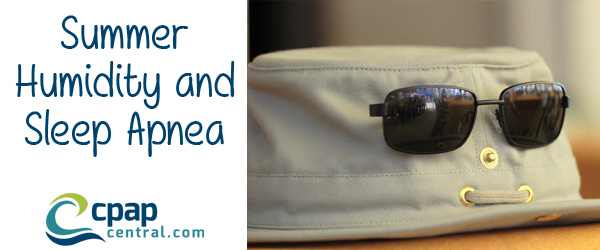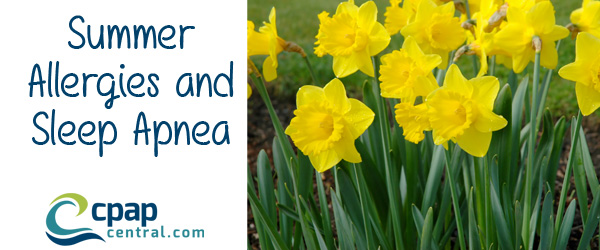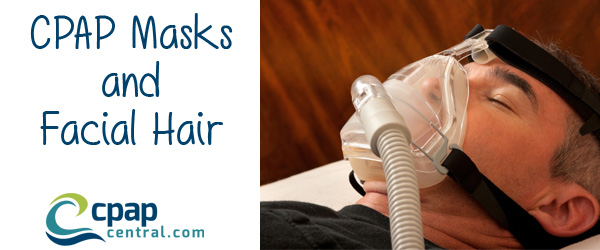It’s finally summer! One of the reasons we love summer so much is the temperatures get warmer, even during the night. With warm nights, many look forward to activities such as barbeques, outdoor concerts, and walks under the stars. CPAP users can add a better night sleep to this list because warmer weather also brings some welcome relief for CPAP users looking to benefit from more moisture in the air.
Humidity is often valuable for CPAP users, especially during the drier months of the winter. When the air is dry, it stays dry as it passes through your CPAP machine, a discomfort many CPAP users overcome with the use of humidifiers. In the summer, the warm air often provides plenty of the moisture that CPAP users so appreciate. CPAPCentral.com wants you to know what the warmer weather means for your sleep apnea therapy.
Generally speaking, warmer weather with more humidity means you can turn down the humidifiers attached to your CPAP machine. The extra moisture in the air is passed through your machine and into your airway, and is much easier to deal with than the colder, drier air that most users have to deal with during the winter months. There are instances, however, where you need to keep your humidifier turned up regardless of the season.
- For CPAP users living in a very dry region, like the desert, it doesn’t really matter what time of year it is, because the air is dry year-round. Keep your humidifier turned up if you live in an area like this so the dry air doesn’t disrupt your therapy.
- There are still times during the summer when the nights are colder. During those nights, especially if the temperature inside is warmer than the temperature outside, you’re going to want to make sure your humidifier is running at a higher level.
If you’re not using a humidifier with your CPAP machine right now, that may be a choice you want to reconsider. Humidifiers not only help you sleep more comfortably, but also keep you healthy. If you want to know more about how a humidifier can help your CPAP therapy, please contact us.



